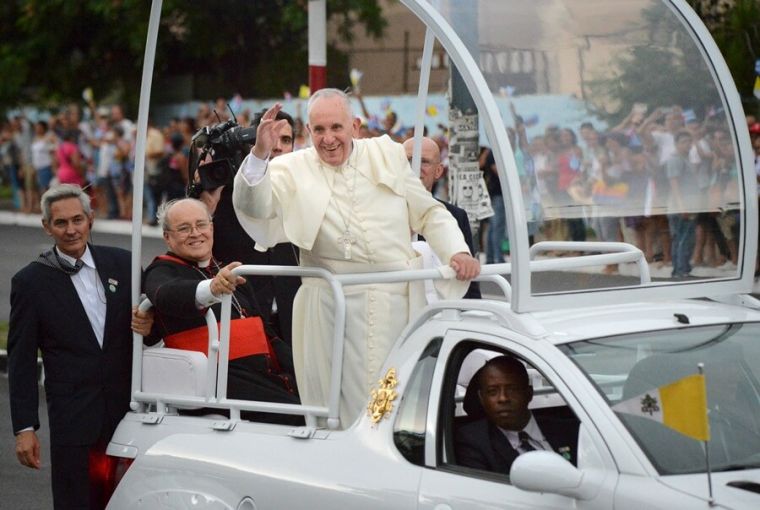Franklin Graham criticises White House guest list for Pope party
A row over the guest list for a party to welcome the Pope to the United States is threatening to overshadow his visit to Cuba.
Evangelical leader Franklin Graham has criticised as "disgraceful" and "inappropriate" the decision to invite gay episcopal bishop Gene Robinson along with gay and other activists to the White House reception to be hosted by President Barack Obama on Wednesday.
Graham accused President Obama of pushing a "sinful agenda".
His criticism follows concerns raised by the Vatican about the guest list, which adds up to nearly 15,000 people in total.

Graham, President of Samaritan's Purse and the Billy Graham Evangelistic Association, wrote on his Facebook page: "It's wise of the Vatican to question President Obama's guest list for the Pope's visit next week—that list should raise a lot of eyebrows!" Those invited to the Pope's welcome celebration include transgender activists, the first openly gay US Episcopal bishop and an activist nun, Graham notes. "This is disgraceful and obviously inappropriate. Is there no end to the lengths the president will go to in order to push his sinful agenda?"
The Pope arrived yesterday in Cuba, where crowds of thousands turned out in Havana today to hear the Pope preach and celebrate Mass during his first full day. He leaves for Washington on Tuesday.
President of Cuba Raúl Castro and and President of Argentina Cristina Fernandez de Kirchner both attended the Mass. Later the Pope met former president Fidel Castro, who is in frail health.
In his homily, the Pope said that it is too easy to be caught up in arguments about things such as importance.
He said: "Jesus is not afraid of people's questions; he is not afraid of our humanity or the different things we are looking for. On the contrary, he knows the 'twists and turns' of the human heart, and, as a good teacher, he is always ready to encourage and support us. As usual, he takes up our searching, our aspirations, and he gives them a new horizon."
Quoting Jesus, he continued: "Whoever wishes to be the first among you must be the last of all, and the servant of all. Whoever wishes to be great must serve others, not be served by others."
Serving others chiefly means caring for their vulnerability, the Pope said. "People of flesh and blood, people with individual lives and stories, and with all their frailty: these are those whom Jesus asks us to protect, to care for, to serve. Being a Christian entails promoting the dignity of our brothers and sisters, fighting for it, living for it. That is why Christians are constantly called to set aside their own wishes and desires, their pursuit of power, and to look instead to those who are most vulnerable."











